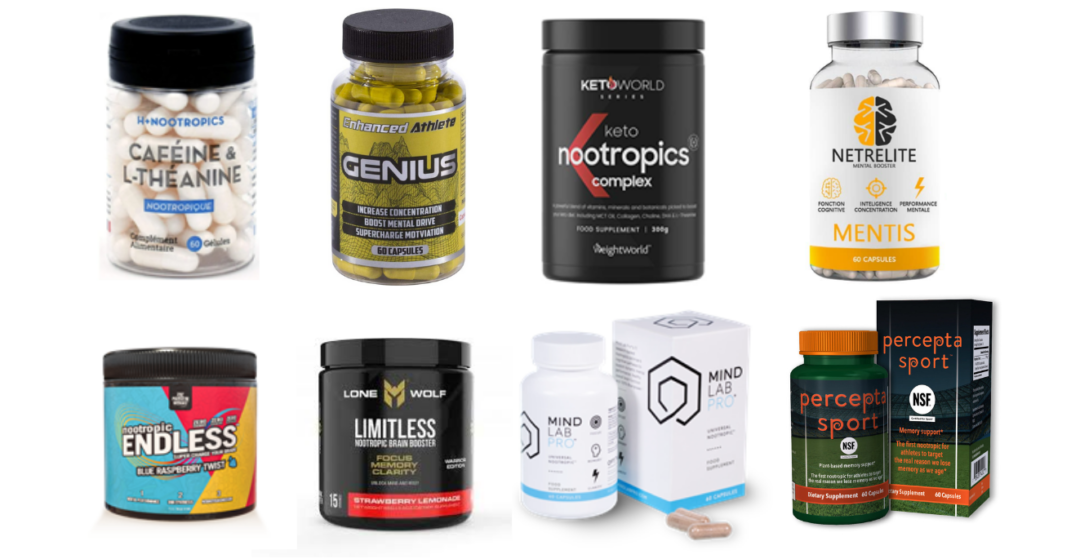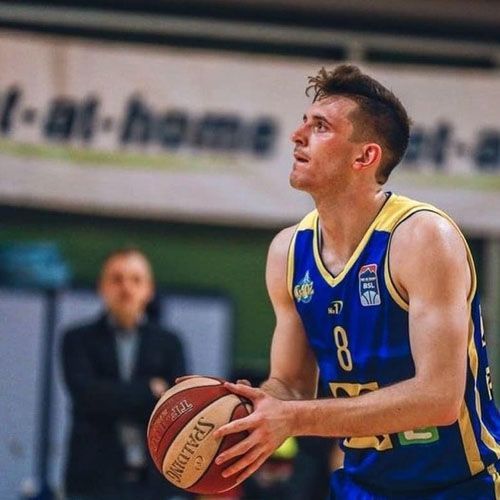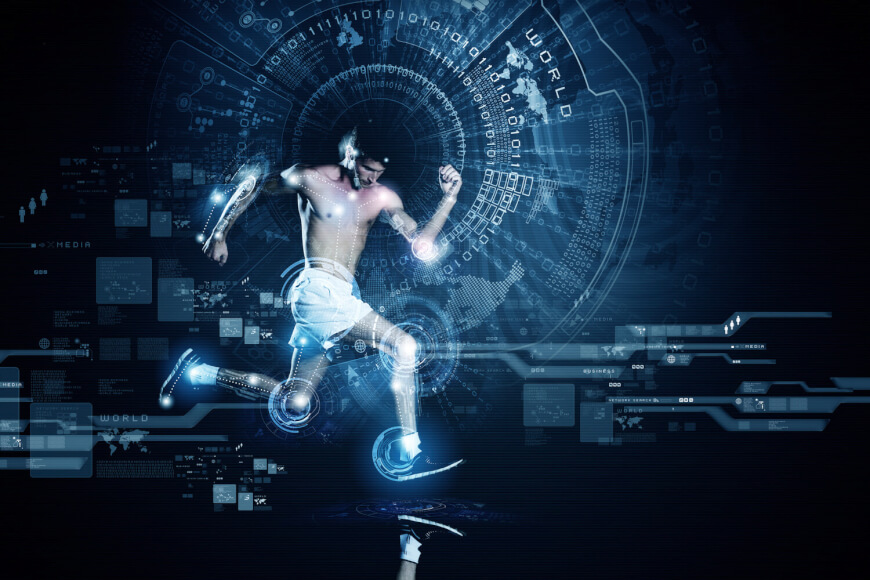Brain Gains: How Nootropics Fuel Athletes' Mental Edge
In a world where every microsecond can mean the difference between victory and defeat, athletes are constantly on the hunt for an edge. This article delves into how nootropics, particularly ones derived from blackcurrants like Ārepa®, can synergize with nutrients to sharpen athletes' cognitive functions. We'll explore the recent findings, the mechanics behind nootropics, and even touch on how simple tools like the Workout Notepad can optimize mental and physical training regimes.
WN
By Workout Notepad
March 13, 2024

The Starting Line: Understanding Nootropics and Nutrient Synergy
The Starting Line: Understanding Nootropics and Nutrient Synergy In the quest for cognitive sharpness and mental stamina, particularly in the competitive realm of sports, nootropics have emerged as a significant ally. These smart drugs encompass a variety of medicinal substances known to enhance cognitive abilities such as thinking, learning, and memory. Their categorization into classical compounds, metabolism enhancers, cholinergics, and plant extracts outlines the diversity of their applications—from improving impaired brain functions to boosting intelligence among healthy individuals. Crucially, the efficacy of nootropics isn’t solely in their individual capabilities; it’s also the result of nutrient synergy. This concept, wherein the combined effect of nutrients working together is greater than the sum of their separate effects, is a cornerstone of their advantage in sports nutrition, where the margins of victory are often razor-thin.
Nootropic substances hold the promising potential of fine-tuning the brain’s performance by modulating neuron activity, neurotransmitter levels, and brain oxygenation. Furthermore, the balance between natural and synthetic nootropics presents a critical consideration for athletes seeking clean, effective cognitive enhancements. Ingredients such as caffeine, L-theanine, and creatine are notable for their effects on memory, attention, and alertness—all of which contribute to an athlete’s psychological readiness. Coupled with the refinement in choosing appropriate dosages and manufacturing processes, nootropics potentially represent a frontier for gains in mental endurance and resilience—vital for high-stakes competitions. As we transition to the next section, the spotlight turns to Ārepa®, a cutting-edge development in this field, demonstrating how the fusion of natural compounds, such as those found in blackcurrants, can provide significant benefits to cognitive performance for athletes.
A Blackcurrant Boost: The Ārepa® Edge
Diving into the pivotal findings of a study centered around Ārepa®, rugby league players served as the perfect subjects to investigate the cognitive benefits of this natural nootropic. The inclusion of potent compounds from blackcurrants, combined with l-theanine and pine bark, posited a significant enhancement not just in mental clarity, but holistically in cognitive performance. Out of the 23 players, those who imbibed the Ārepa® drink showcased a considerable improvement in terms of cognition; this was reflected in the elevated scores on accuracy and total responses, along with a finer average response time. The athletes’ sense of reliable mental function expanded, and distractions seemed to diminish post-consumption, indicating a probable correlation between the blackcurrant component and heightened mental endurance—a vital attribute in the dynamic landscape of sports.
These findings underscore the credible potential of Ārepa®—rooted in blackcurrant’s natural properties—to cement its place as a benefactor in the realm of sports nootropics. Competitors striving for that mental edge might find a dependable ally in Ārepa®, taking it beyond just a supplement; it’s an enabler of mental resilience. As we transition to anecdotes from athletes themselves, with the subsequent section throwing light upon real-world applications and experiences, it’s evident that such cognitive enhancements are more than just numbers on a scientific paper. They are tangible experiences, possibly imperceptible side effects included, reshaping athletes’ approaches and attitudes towards mental acuity and overall neurological health.
Anecdotes from the Field: Athletes’ Experiences with Nootropics

focused athlete testimonials
Echoes from the competitive frontlines tell of the increasingly popular role nootropics, like the blackcurrant-based Ārepa®, are playing in athletes’ mental fortification regimes. Tales from rugby fields to athletics tracks narrate how such supplements potentially sharpen focus and accelerate cognitive reactions. Particularly compelling is the shared experience of rugby league players participating in the New Zealand study who observed noticeable improvements in mental clarity, accuracy, and response times, when consuming the nootropic-infused beverage. Their collective testimonials speak volumes about the practical impact of these cognitive enhancers in sports-intensive moments, arguably lightening the mental load and amplifying resilience in the face of tactical demands. While anecdotes hint at an ergogenic advantage, the landscape is not without its due skepticism; some athletes remain circumspect about efficacy, and thus far, reported side effects are absent, yet the call for more robust, longitudinal research persists, underscoring an acknowledgment of the complexity of the human brain and the finely tuned balance required for peak performance-enhancing interventions.
The stream of user experience stories continues to flow, influencing the investigation into not only nootropics themselves but also the broader context of mental readiness and its integration with physical prowess. As we delve into the nexus between mind and muscle, techniques for enhanced concentration become as critical as the physical regimen itself. The application of tools like the Workout Notepad app elevates this synergy, offering precision in tracking physical exertions alongside the impact on mental faculties. The capacity to reflect on comprehensive graphs detailing exercise distribution or visualize progress over time speaks to the modern athlete’s pursuit of elevating not just the brawn, but equally the brain, setting the stage for the following section’s exploration into the interwoven nature of mental and physical conditioning.
Mind and Body Sync: Training Routines and Mental Preparation
Mind and Body Sync: Training Routines and Mental Preparation
The synergy between mind and body is evident in the pursuit of athletic excellence—mental strategies need to be woven seamlessly into the fabric of physical training. Integrating mental and physical aspects of training ensures that athletes are comprehensively prepared for challenges on and off the field. Adopting methods from sport psychology, like the 5-stage PST model, offers athletes an approach to develop the mental resilience and precision required for optimal performance. By exercising both the mind and brain through specific preparatory routines (PR), athletes cultivate the mental acuity to control emotional states, leading to more consistent performance, especially in self-paced tasks where mental focus is paramount.
Moreover, utilizing tools such as the Workout Notepad can be instrumental in achieving such mind-body integration. By tracking steadily both cognitive milestones reached through psychological skills training and the physical benchmarks in training, individuals gain invaluable insights into their progress. Keeping a detailed log of workouts paired with notes on mental state creates a record that highlights the intimate interplay between physical exertion and mental discipline. These reflections become a roadmap, guiding athletes through their periodized training plans, helping them see where the implementation of mental strategies and dietary nutritional strategies intersect. In the next section, we delve into how athletes can enrich their training with specific nutritional strategies that support both cognitive and physical goals.
What’s on the Plate? Nutritional Strategies for Cognitive Support
Strength lies not only in the intricacies of training but equally within the confines of a carefully curated diet. For athletes and the increasingly recognized realm of esports competitors, the fusion of nootropics with a supportive nutritional blueprint is paramount. Studies illustrate that most esports athletes are found lacking in optimal dietary patterns, consistently missing out on essential nutrients requisite for peak cognitive functioning – a shortfall that mirrors their often-subpar physical activity levels and sleep quality. As such, strategic nutritional intervention becomes indispensable. Edging towards a high-protein diet brimming with vitamins and minerals can pay cognitive dividends, seamlessly complementing nootropics’ purported benefits. Athletes should seek to imbibe a diverse spectrum of dairy, fruits, vegetables, and whole grains while keeping an eye on protein-rich sources to propel their mental agility. Furthermore, juggling intense training with such nutritional rigor could possibly bridge their performance gap, feeding both brain and brawn in sync with rigorous physical exertion.
In constructing such a comprehensive and cognitively conducive diet, the importance of tracking and adaptation cannot be overstressed. Using tools akin to the Workout Notepad may aid athletes in meticulously monitoring their intake of these cognitive-enhancing nutrients alongside their physical exercise regimes, yielding a robust diary of their mind-body synergy. The practice of alignifying one’s diet with nootropic intake opens a promising avenue for achieving a holistic enhancement of mental prowess, a philosophy embedding nutrients as the building blocks for cognitive excellence. As we unravel this nutri-nootropic harmony and its alignment with physical discipline, the subsequent section shall light the path further down this cerebral corridor, explaining the neurochemical dance orchestrated by nootropics inside our brains. From neurotransmitter modulation to synaptic plasticity, understanding the mechanics beneath it all presents a clearer avenue toward tailored cognitive enrichment.
The Science Beneath: How Do Nootropics Work in the Brain?
Nootropics operate on the micro-level of brain chemistry, interacting primarily with a delicate dance of neurotransmitters—the brain’s chemical messengers. They potentially modulate cognitive processes by enhancing neurotransmitter activity or influencing their systemic balance. Ingredients like L-theanine, often present in green tea, have been shown to increase activity in the neurotransmitter GABA, which is associated with producing calming effects and reducing anxiety. This increased GABA activity might contribute to a tranquil yet alert mental state. Similarly, substances such as CDP-choline boost acetylcholine, another neurotransmitter that plays a pivotal role in cognition and memory formation. The proposed idea is that heightened levels of acetylcholine could help enhance mental clarity and memory performance. Furthermore, nootropics such as creatine monohydrate may support brain energy metabolism, allowing for improved attention span and mental agility. The inherent diversity of nootropics speaks to multiple pathways of cognitive enhancement, each targeting different aspects of neurological function. While prescription nootropics like stimulants target ADHD by influencing dopamine and norepinephrine concentrations, Bacopa Monnieri, a traditional herb, is purported to bolster brain antioxidant activity consequently fortifying cognitive resilience against decline.
As intriguing as these mechanisms are, understanding how to harness the full potential of nootropics requires a systematic and responsible approach. Planning this requires more than a basic understanding of cognitive enhancers; it calls for a strategic regimen that considers dosage, timing, and the integration of such supplements with the body’s physical demands—topics that will be elaborated in the following section. Though the navigation of this nuanced landscape might seem complex, the anticipated cognitive benefits provide sufficient incentive for individuals looking to boost their mental capabilities. Equally essential is to engage in detailed consultation with healthcare practitioners, especially since the FDA does not stringently regulate dietary supplements. Proceeding with caution ensures that the chosen tactics align with one’s personal health and lifestyle requirements, thus elucidating the path for structured and optimal cognitive enhancement.
Planning To Win: Structuring a Cognitive Enhancement Regimen
As you embark on a regimen to enhance cognitive performance through nootropics, it’s important to approach this venture with the meticulousness of a scientist and the discipline of an athlete. Start by determining the appropriate dosages, referring to scientific literature and professional medical advice to inform these choices. As nootropics can have varying effects depending on the individual, it’s crucial to begin with smaller doses and gradually increase, paying close attention to the body’s responses. Track the effects in a log, noting any improvements in focus, memory or stress levels, and adjust dosages accordingly. Furthermore, consider the timing of your dosage carefully to align with your cognitive peaks and troughs throughout the day. For athletes, this could mean scheduling nootropic intake prior to a training session or competition to optimize mental sharpness when it counts the most.
Coordination with your physical training routines is equally essential. Plan your nootropic intake around your workout schedules, allowing for maximum cognitive support during high intensity training while respecting recovery times. Given that athletes often require optimal nutrition as well, integrating a nootropic strategy with robust dietary plans, such as incorporating Xwerks Grow—a whey protein that supports your body’s overall nutritional needs—may provide a complimentary approach to enhancing cognitive functions. Remember to keep a close eye on how your body and mind respond not just during workouts, but throughout different stages of your training cycle. Use tools like The Workout Notepad to keep a detailed log of both your physical and cognitive enhancement activities, ensuring synchronicity and identifying patterns over time. As you establish a balanced and informed nootropic regimen, you set the foundation for both mental and physical strength that could very well redefine your capabilities.
The Finish Line: Future of Mental Strengthening Tactics

future sports technology
As the sporting world races towards increasingly competitive landscapes, the realm of cognitive enhancement through nootropics and cognitive training (CT) holds the finish line ribbon with a promise of advantageous strides in mental preparedness and performance. While athletes and coaches alike are curious about the genuine benefits these interventions might harbor, the future of nootropic research—particularly focused on athletic usage—is abuzz with potential breakthroughs. Virtual reality (VR) environments, already a part of contemporary training, may provide sophisticated platforms to measure and enhance cognitive capabilities in ways that directly correlate with athletic prowess. Combined with rigorous neuroimaging and sports-specific assessments, this innovation could lead to fine-tuned training regimens that complement the physical aspects of an athlete’s preparation, piloting them beyond traditional barriers. Yet, this brave new world isn’t without its contemplations. Ethical considerations beg the conversation, as the proliferation of cognitive enhancers poses questions of fairness, accessibility, and the very definition of natural talent within sports. Governing bodies will face the challenge of navigating these transformative tools versus the preservation of sports integrity, requiring nuanced policies and vigilant guidance to ensure a level playing field.
Precedent-setting research and discourse, while still in infancy, are setting the stage for a nuanced exploration of cognitive enhancements in athletics. It goes beyond asking whether these tactics work—it’s about how they’re integrated, regulated, and ethically managed within the global sporting framework. There is a call to arms for comprehensive studies, involving athletes, coaches, and sports scientists, to unearth the multidimensional impact of cognitive strategies. Athletics may soon witness a harmonious interplay between mind and muscle that could redefine what it means to train and compete, always with the caveat that the human element remains central to the competition. In tandem, tools like the Workout Notepad could provide detailed insights into the effectiveness of cognition-oriented regimens when used thoughtfully in conjunction with other training data, effectively bridging the gap between traditional physical training and the burgeoning realm of cognitive tactics. It is at this juncture between the present and the extensively analyzed, where the trajectory of mental strengthening in sports will either sprint ahead or await further scientific endorsement. The future, rich with interdisciplinary potential, awaits a starters’ gun of its own.
SOURCES
- https://www.ncbi.nlm.nih.gov/pmc/articles/PMC7222175/
- https://xwerks.com/blogs/guides/the-ultimate-guide-to-nootropics-for-athletes
- https://www.jlbdeveloppement.com/wp-content/uploads/2020/10/JLB-DEVELOPPEMENT-13-1080x559.png
- https://www.ncbi.nlm.nih.gov/pmc/articles/PMC9415189/
- https://www.jlbdeveloppement.com/en/sports-nutrition-an-opportunity-for-nootropic-products/
- https://pubmed.ncbi.nlm.nih.gov/32326538/
- https://www.mdpi.com/2076-3921/9/4/316
- https://www.amazon.com/Fasted-Athlete-Nootropic-Supplement-Mushroom/product-reviews/B0BS4HKJ8Y
- https://www.ncbi.nlm.nih.gov/pmc/articles/PMC7222175/
- https://le-cdn.hibuwebsites.com/9a8ac7a975594df3848e131f4bc96689/dms3rep/multi/opt/level-up-fitness-nick-mcglynn-640w.jpg
- https://sportspsychology.medium.com/creating-a-mental-training-plan-for-your-athletes-ddfc18d6e35c
- https://www.ncbi.nlm.nih.gov/pmc/articles/PMC9374066/
- https://pubmed.ncbi.nlm.nih.gov/35206801/
- https://www.frontiersin.org/articles/10.3389/fnut.2023.1120303
- https://www.webmd.com/vitamins-and-supplements/features/nootropics-smart-drugs-overview
- https://adf.org.au/drug-facts/cognitive-enhancers/
- https://xwerks.com/blogs/guides/the-ultimate-guide-to-nootropics-for-athletes
- https://nootropicsexpert.com/6-best-nootropics-for-athletic-performance/
- https://pubmed.ncbi.nlm.nih.gov/32525422/
- https://www.frontiersin.org/journals/psychology/articles/10.3389/fpsyg.2018.01121/full
- https://cdn.medicalfuturist.com/wp-content/uploads/2016/11/future-of-professional-sports.jpg
